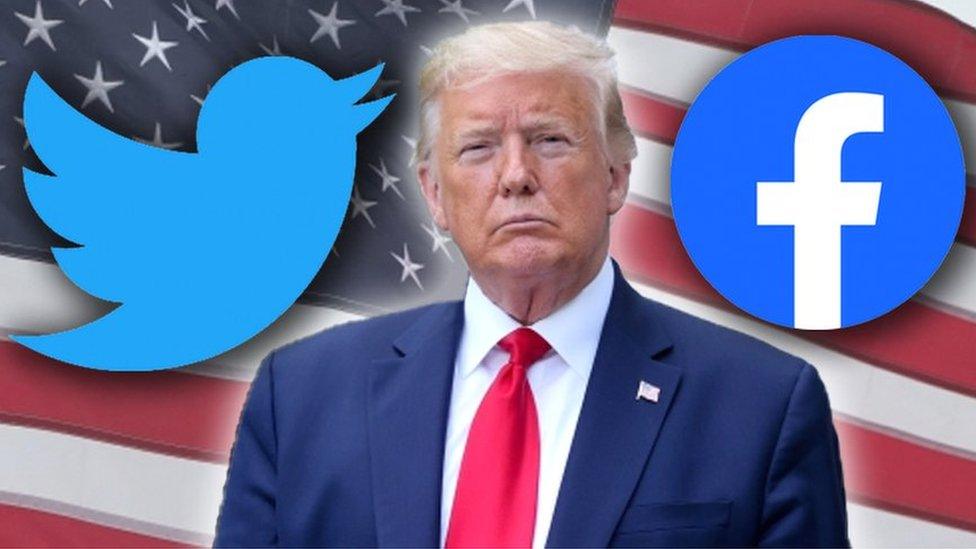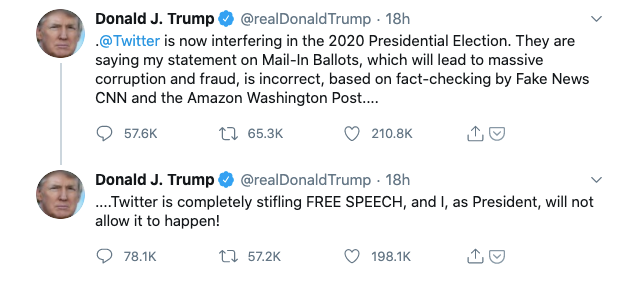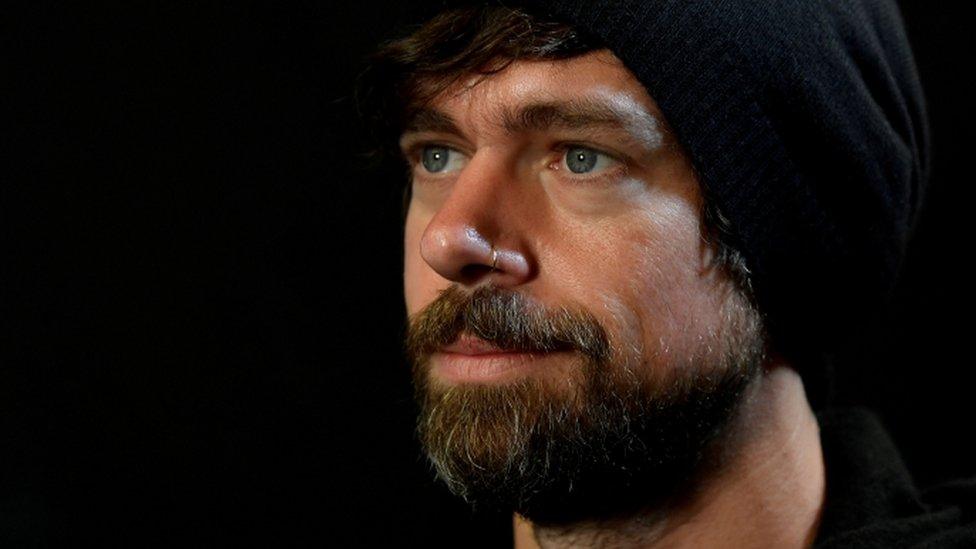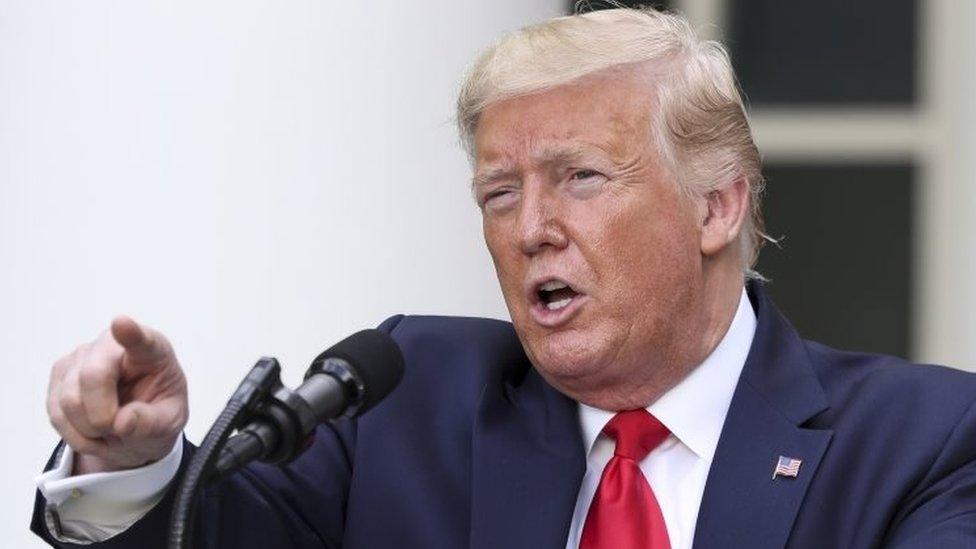Trump threatens to shut down social media companies
- Published

President Trump has taken the extraordinary step of threatening to close down social media platforms.
The threat came after Twitter added fact-check links to his tweets for the first time.
The battle between the president and the social-media companies has been brewing for a time.
But now it feels as though an all-out war is looming between Donald Trump and Twitter ahead of the US presidential election, in November.
Last night, a couple of Trump tweets raging about "fraudulent" postal ballots in US elections featured - for some users but not all - a strapline linking to what Twitter called "facts about mail-in ballots."
This then led to a page debunking the president's claims but featuring articles from two organisations he regards as his sworn enemies, CNN and the Washington Post.
It took him no time to fight back, tweeting, external: "Twitter is completely stifling free speech, and I, as President, will not allow it to happen."
Then, on Wednesday morning, the president woke up and raised the temperature even further with this two-part tweet, external:

"Republicans feel that social-media platforms totally silence conservatives voices.
"We will strongly regulate, or close them down, before we can ever allow this to happen.
"We saw what they attempted to do, and failed, in 2016.
"We can't let a more sophisticated version of that... happen again - just like we can't let largescale mail-in ballots take root in our country.
"It would be a free-for-all on cheating, forgery and the theft of ballots.
"Whoever cheated the most would win.
"Likewise, social media.
"Clean up your act, now."
Conspiracy theories
So does he mean any of this?
It is very hard to see Congress passing laws to strongly regulate or close down social-media platforms.
The president refers to free speech.
But as a private company, Twitter is free to police its platform as it sees fit.
Nevertheless, for Twitter's chief executive, Jack Dorsey, this is undoubtedly just the start of a clash that will continue right up until the November election.
In recent days, he has been under huge pressure to do something about President Trump's tweets.
Now, he has acted but not in a way that might have been expected.
There has been a furore over the way the president has used Twitter seemingly to endorse a baseless conspiracy theory about one of his critics, the TV presenter and former Republican Congressman Joe Scarborough.

Twitter chief Jack Dorsey has resisted pressure to delete some of President Trump's previous tweets
President Trump has repeatedly suggested the death in an accident, in 2001, of one of the Congressman's aides, Lori Klausutis, is a "cold case" that deserves to be reopened by the police.
And that led the widower of Ms Klausutis to write to Jack Dorsey, pleading with him to remove the president's tweets because of the pain they were causing her family.
So far, Mr Dorsey has refused, apparently convinced the president's Twitter feed has protected status because it is part of the public record.
Nor was there any attempt to correct the inaccuracies in the tweets.
Adding a fact-check to the tweets about mail-in ballots appears to fit in with a new Twitter policy on protecting elections, external.
It warns users they may not post or share content that may interfere in elections or might suppress participation.
Last night, another baseless conspiracy theory - this time about a made-up crime involving Donald Trump in 2000 - was posted by an account called TheTweetofGod.
It too has neither been removed nor fact-checked, perhaps because Twitter realises it would be accused of inconsistency.
The president's Facebook page also features his diatribes about mail-in ballots and Joe Scarborough, with no sign of any fact-checking or limits on sharing such material.
But that's not to suggest it will escape his ire.
Last week, the president tweeted, external: "The radical left is in total command and control of Facebook, Instagram, Twitter and Google."
And he intended to "remedy this illegal situation".
There have since been reports the White House might set up a special commission to investigate the claim.
Whatever the social-media companies do about their most famous and controversial user is bound to cause anger on one side or another.
They can look forward to a long hot summer.
- Published27 May 2020

